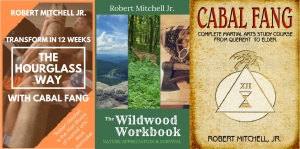 I’m finally getting around to it — writing my response to an article I read on VICE.com by Rick Paulas called Can an Open Source Religion Work?
I’m finally getting around to it — writing my response to an article I read on VICE.com by Rick Paulas called Can an Open Source Religion Work?
Rick opens up guns blazing, firing off criticisms of “gatekeepers” — priests, parsons, rabbis, and imams. No issues here. I generally agree that intermediaries only restrict and control the discourse between humans and Deity/God/The All/The Universe. Often these intermediaries have an agenda. Power. Control. Money making.
He then proceeds to try and answer the question of whether, since Pirate Bay and Twitter are all the rage, we might be able to go open source with the whole religion thing. He explores Syntheism, Atheism 2.0, and so forth. In the end, Rick quotes the criticisms of a college professor named O’Leary and arrives at the conclusion that it won’t catch on.
More vital to O’Leary’s skepticism is the lack of mystery, which is inherently woven into the fabric of hierarchy. “Mystery is an integral part of the religious experience, even if it’s experienced purely objectively,” he says. “Magic, mystery, it all goes to support authority.”
Unfortunately, although often true, this statement isn’t always true. Which basically means that it’s, well, false. Not your fault Rick. You just happened to consult with an expert who wasn’t aware of one important exception.
You see, mystery is an important element in an open source religion that has been flourishing for millennia. It’s called mysticism, and it’s an eclectic, non-denominational mystery religion that anybody can join. It has no dogmas and no leaders, yet there is no lack of communication. To quote Louis-Claude Saint-Martin, “All mystics speak the same language, for they come from the same country.”
Simply put, a mystic is someone in pursuit of a direct connection with the Divine. According to the 1911 Britannica, mysticism is “the endeavour of the human mind to grasp the divine essence or the ultimate reality of things, and to enjoy the blessedness of actual communion with the Highest.”
Pythagoras, Saint Teresa of Avila, Saint John of the Cross, Brave New World author Aldous Huxley, Beatles musician George Harrison, psychologist Carl Jung, Evelyn Underhill (author of the definitive work on the subject of mysticism), Allen Ginsberg, and most of the poets who ever lived, were all mystics.
Thanks Rick, for a fascinating article. I mean that — no sarcasm at all. Just want you know that there are, have been, and always be people who embrace and explore religion and mystery in a radical, anarchic way. People who use mystery and religion, not as weapons or means of control, but as tools to open the mind.
These people are called “mystics.”





Pingback: Atheism, Syntheism, Religion 2.0, etc. | DestinedToNap